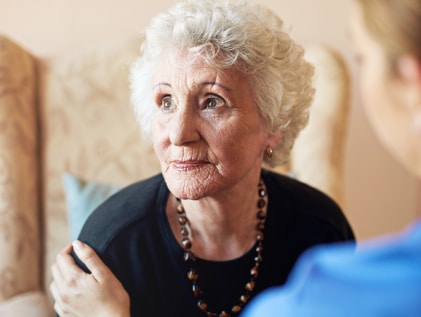For most people over the age of sixty-five that experience age-related memory impairment, occasional moments of forgetfulness are normal. If you’ve noticed your loved one misplace an important item or forget what they were about to say from time to time, there is likely no reason to be concerned. However, when these moments begin occurring more frequently, or if your loved one has difficulty taking care of himself and completing daily chores, he may need more help than he’s admitting.
It’s not uncommon for seniors to try and hide that they’re experiencing cognitive decline. Be on the lookout for some of the following indications that your loved one is struggling on their own:
- Being physically or emotionally aggressive towards family members or caregivers
- Spending most of the day alone at home and unable to get out and run errands or see friends
- Living in an unkempt home or having difficulty tidying, cleaning, and keeping up with laundry
- Disregarding major home repairs
- Showing disinterest in cooking, grocery shopping, and forgetting to eat regular meals
- Failing to pay bills on time
- Neglecting personal hygiene or having difficulty using the bathroom on their own
- Forgetting to take medications on schedule
- Wandering away from home and getting confused about where they were going
- Refusing to go to the doctor for scheduled appointments and routine exams
- Health problems that are worsening and require more regular attention from professional caregivers
- Experiencing frequent trips or falls
- Getting into fender benders and having unexplained dents or damage on their car
- Experiencing frequent injuries and bruising
- Rapidly losing weight
Identifying that your loved one should no longer live alone or that they need daily assistance is difficult. Once you’ve come to this realization, it may be time to have an open discussion about your concerns. If they are resistant to your input, reach out to a trusted family friend or physician. Your loved one may be more receptive to taking advice from a neutral party. From there, involve your loved one’s family members, doctors, and financial advisors to create a caregiving plan of action that everyone can agree on.

